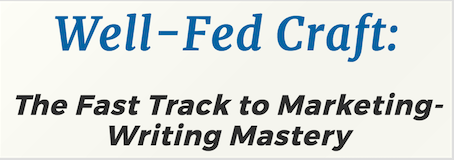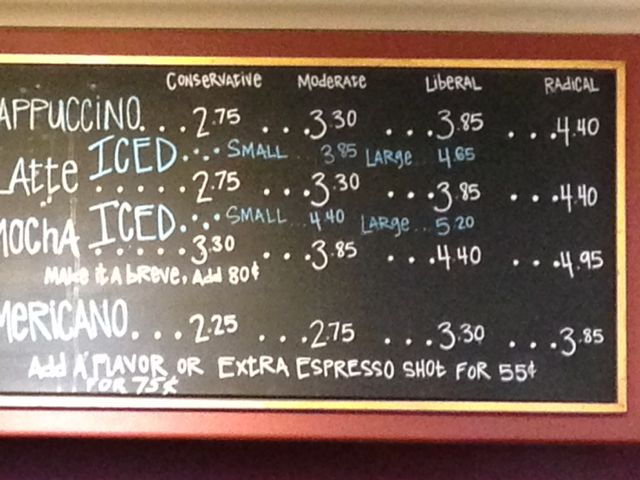The ‘APPETIZER’ Series: The original version of this piece first appeared as an Appetizer course in The Well-Fed E-PUB in June 2016, and was one I wanted to run as a blog post (with minor alterations) in order to get input from many voices.
Got this note from a successful commercial writer recently:
Another new client asked if I have any wiggle room on my price for 10 emails (at $100 each). This will probably take me a few hours total, so I dropped it to $750, which will still be plenty profitable. Lesson learned: Start high so you can come down if you have to.
He said he works with another writer who charges $50 an hour (ugh!) but would rather work with me. Lesson #2: Do great work so your clients love you and will gladly pay your higher fees for the quality!
Now, if that isn’t the very picture of the ideal copywriting client we all need to be pursuing, I don’t know what is: one who’ll pay more—and sometimes far more—than they’ll pay another copywriter, just to have it done right and done well.
Someone for whom the predictable superior outcome is the goal. The outcome trumps money (within reason) every time.
Think about that: Good clients can and DO perceive the difference between a great commercial writer and an average one. Sounds obvious, but to some writers trying to get traction, they look around at countless other writers asking for $5-10 per article, and ask, “How in the world can I compete with that?â€
Of course, the answer is: You’re not competing with that, and if you try to, you’re either going to lose, or go broke winning.
You don’t compete. You distinguish yourself in some way: by having a niche or specialty, by simply being a better writer, but first and foremost, by looking in different places for work.
Yes, you have to be a decent writer to make money as a commercial freelancer, but I’d wager good money there are plenty of writers out there with modest writing skills—skills little better than those struggling on the online job sites or writing for the content mills—but they’re making a decent living (i.e., making at least $50+ an hour or more).
How? Simply because they stopped hanging out in those low-rent writing ghettos, and stopped bidding on projects with a zillion other writers (a surefire strategy for driving rates down to nothing) and started proactively hunting for writing clients.
Could giving yourself a raise be that easy? Absolutely.
Now, those modest skills are unlikely to propel you into $90-$100-$125/hour+ territory, and far higher than that, like our friend above, but improve them, redirect them into narrower directions, and deliver that predictable superior outcome, and watch what clients will be willing to pay.
Have you experienced the kind of client I describe above—for whom the superior, predictable outcome is something they’ll pay handsomely for?
Have you had clients tell you they prefer working with you, even though you charge more than other writers? If so, what is it they like about you?
Have you spent time in the low-pay writing world, while knowing you were a better writer than most you were competing with?
Have you been able to boost your income just by looking for work in different—and more proactive—ways, and in different places?
Speaking of improving your skills… If you’re interested in giving your commercial-writing skills a serious upgrade, and in the process, give yourself the confidence to take on ANY high-paying commercial writing project, I invite you to check out Well-Fed Craft, my new self-paced course on how to actually write the most common copywriting projects. For full details, go here.
Want to be a guest blogger on TWFW Blog? I welcome your contribution to the Well-Fed writing community! Check out the guidelines here.



